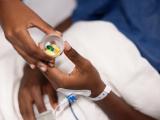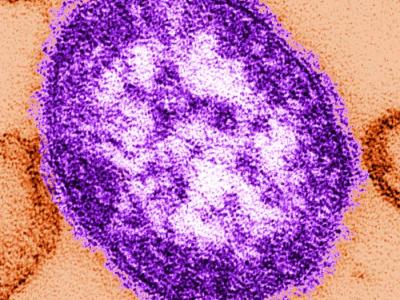Jun 6, 2012
WHO warns that treatment options for gonorrhea may run out
The World Health Organization (WHO) warned today that rising antibiotic resistance suggests that the world may soon run out of effective treatments for gonorrhea unless urgent action is taken. The agency said cases of gonorrhea resistant to cephalosporins, the last effective antibiotics, have been reported in several countries, including Australia, France, Japan, Norway, Sweden, and the United Kingdom. In new guidance issued today, the WHO calls for greater attention to the correct use of antibiotics and more research into alternative treatment regimens. The agency's global action plan to control antimicrobial resistance in Neisseria gonorrhoea also calls for increased monitoring and reporting of resistant strains as well as better prevention, diagnosis, and control of gonococcal infections. The pathogen has become resistant to many antibiotics used to treat it, including penicillin, tetracylines, and quinolones. "We are very concerned about recent reports of treatment failure from the last effective treatment option—the class of cephalosporin antibiotics—as there are no new therapeutic drugs in development,” said Manjula Lusti-Narasimhan, PhD, of the WHO's Department of Reproductive Health and Research. Each year an estimated 106 million people contract gonorrhea, which can lead to a range of problems including infertility, spontaneous abortions, and a higher risk of HIV infection, the WHO said.
Jun 6 WHO statement
CDC information on antibiotic-resistant gonorrhea
Judge orders FDA to review risks of using antibiotics in livestock
A federal magistrate judge in New York recently handed the US Food and Drug Administration (FDA) another setback in its policy on the use of antibiotics in food animals, ordering the agency to reconsider two petitions seeking restrictions on the practice. In March, Judge Theodore Katz ordered the FDA to restart a process begun in 1977 to ban the growth-promotion uses of penicillin and tetracycline in food animals unless the industry can prove they are safe. In the latest ruling, Katz rebuked the FDA for denying two petitions from health and consumer groups that urged the agency to consider barring farmers from using antibiotics in livestock for nontherapeutic purposes, according to a Reuters report yesterday. Both rulings came in a lawsuit filed by a coalition of nonprofit groups. "For over thirty years, the Agency has been confronted with evidence of the human health risks associated with the widespread subtherapeutic use of antibiotics in food-producing animals, and, despite a statutory mandate to ensure the safety of animal drugs, the Agency has done shockingly little to address these risks," Katz wrote, according to Reuters. The FDA had rejected the petitions, filed in 1999 and 2005, on grounds that the formal process for canceling drug approvals was too costly and slow. The agency has relied on a mostly voluntary strategy for ensuring the "judicious use" of antibiotics in farm animals, and in April it released new guidance to that end. News reports said the FDA has declined to comment on the new ruling. The agency recently filed an appeal of Katz's March ruling.
Jun 5 Reuters report
Jun 5 Food Safety News story
Jun 1 CIDRAP News item on FDA appeal
Apr 11 CIDRAP News story on FDA's voluntary strategy
Simultaneous chikungunya, dengue outbreaks caused co-infections in Gabon
Simultaneous outbreaks of chikungunya and dengue virus infections that began in 2007 in Gabon led to the rare identification of 37 patients infected with both viruses at the same time, according to a report yesterday in Clinical Infectious Diseases. The episode began with a large outbreak around Libreville in northwestern Gabon in 2007. Smaller outbreaks traced a southeasterly path in 2008 and 2009, and in 2010 a large outbreak hit Franceville in the southeast. Using active surveillance of acute febrile illnesses from 2007 through 2010, Gabonese researchers identified 1,567 patients with chikungunya infections, 376 with dengue infections, and 37 who were co-infected. Nineteen of 24 co-infected patients in Franceville had clinical examinations; none of them required hospitalization or had hemorrhagic or neurologic complications, though all had fever and joint pain. There was no evidence of differences in clinical manifestations between co-infected and mono-infected patients. The simultaneous appearance and spread of the two infections, rarely seen before, coincided with the introduction and spread of Aedes albopictus mosquitoes, the researchers write. They found one co-infected A albopictus mosquito, which they describe as the first such finding in nature, though such co-infections have been created experimentally. "Co-infection could facilitate rapid genetic evolution of the two viruses and lead to changes in their infectivity or pathogenicity," the researchers comment.
Jun 5 Clin Infect Dis abstract




















